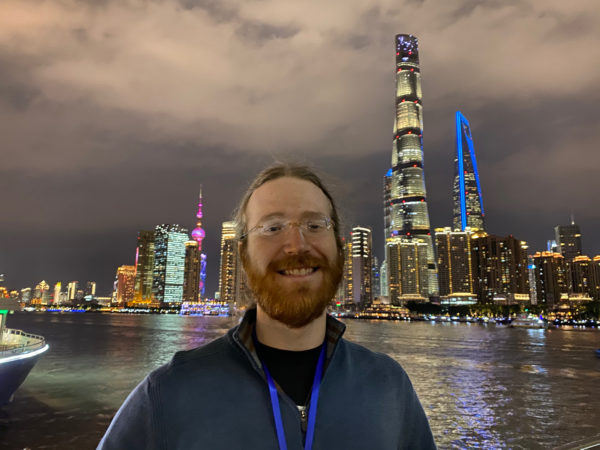
 What is your position or role in the DESI project?
What is your position or role in the DESI project?
I am currently a postdoctoral fellow at Shanghai Jiao Tong University, which is an institutional member of DESI. In terms of my role within DESI, I’m an active member of the c3 working group and one of the co-organizers of the galaxy cluster analysis within c3. I also served as a member of the secondary target selection review committee for the DESI SV and Y1 data.
Where were you born? Where do you live now?
I grew up in Saratoga Springs, NY. I did my undergrad at Brown University and my Ph.D. at the University of Michigan. I’m currently living in Shanghai, China, where I work at Shanghai Jiao Tong University.
What do you do as part of DESI?
I am working with DESI data to study galaxy evolution within cluster environments. The first of these projects is constructing a complete sample of SDSS-redMaPPer clusters from DESI observations to understand projection effects on cluster membership. The second is a study of the stellar outskirts of massive galaxies using DECaLS data as a proxy for identifying clusters. Additionally, I’m participating in the remote observing effort for DESI, which I’m very excited to do!
What is the most interesting or exciting thing about your job?
I love that Astronomy allows me to ask and investigate the big questions. As much of my research is related to galaxy evolution, I love exploring the past to look at massive galaxies at different points in cosmic time in order to understand the physical scenarios that have led to the observations that we currently see. Because Astronomers don’t have the ability to watch individual galaxies change over time, I really enjoy using our snapshot images of different galaxies to construct a rough evolutionary pathway to estimate how massive galaxies evolve.
Any advice for an aspiring scientist?
Make sure to find good and supportive mentors. Especially in graduate school, it’s very important that you find a mentor that you can work well with and who supports you both as a person and as a scientist. From my experience, it’s incredibly important to build a network of mentors and collaborators that you can go to for help and advice, whether it’s research advice, job advice, or life advice. I think it’s also important to remember that these mentors don’t have to be located at the same University you are or work in the same sub-field of Astronomy that you are working in.
What do you do for fun?
When I’m not working on the many different astronomy projects that I’m currently involved in, I enjoy running in different parts of Shanghai, reading comic books and manga, and cooking delicious vegan food and baked goods!